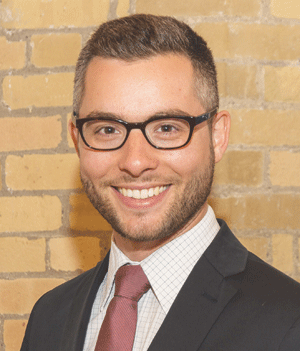A
pro bono articling job posted for a Greater Toronto Area legal clinic has created a stir around unpaid legal work.

The job posting, posted on Legal Aid Ontario’s web site, says the Durham Community Legal Clinic is looking for a student for a 10-month unpaid gig.
In addition to assisting legal workers at the clinic, the student will also represent clients before tribunals and undertake legal case work in some areas of the law, according to the job posting. A suitable candidate would need to have a car, the advertisement noted.
Employment lawyer Danny Kastner of Turnpenney Milne LLP says unpaid articling defies common sense.
“Unpaid articling positions are lawful,” says Kastner.
“Articling students are exempted from the minimum wage protections in the Employment Standards Act. But as a matter of policy and common sense, law students who have broken the bank to complete their legal education shouldn’t have to submit to 10 months of unpaid work to become qualified.”
For its part, Legal Aid Ontario says clinics make their own hiring decisions.
“Durham Community Legal Clinic is, of course, one of the 76 legal clinics we fund,” says Genevieve Oger, a spokeswoman for LAO.
“You may also know they function independently and they’re responsible for their hiring and management decisions. They have their own boards of directors and these independent boards represent the communities they serve. The questions really need to be asked of the Durham legal clinic.”
Deborah Hastings, executive director of the Durham clinic, didn’t respond to a request for comment. Lenny Abramowicz, executive director of the Association of Community Legal Clinics of Ontario, says legal clinics do offer unpaid articles on occasion. Clinics’ preference would be to always pay articling students, says Abramowicz, but every year LAO funds just four to five articling jobs across the 74 organizations in Ontario.
“A clinic would get funding to retain an articling student usually once every 15 years,” says Abramowicz.
“We don’t have the funding for it. That’s our fundamental problem,” he says, adding that although clinics aren’t proud to offer unpaid articles, they’re not in the same category as for-profit private corporations that hire interns for no pay.
Kastner says legal clinics are “desperate to support the communities they serve” and notes “this is the result.”
To say hiring choices are entirely the responsibility of clinic boards is akin to “a parent not giving their child breakfast, then scolding the kid for falling asleep in class,” says Kastner.
“LAO should fund this position immediately.”
But according to Abramowicz, the problem is also about the crisis around articling and the lack of paid positions. He says he often gets calls from students who are unable to find paid positions and are willing to work for free.
“If the profession believes it’s important to have articles of clerkship, then there should be a fund created,” he says.
“I’m old enough to remember when I started paying my law society dues, there was a certain percentage of it that went to a legal aid levy. . . . Someone in their wisdom decided that wasn’t a good idea.”

 The job posting, posted on Legal Aid Ontario’s web site, says the Durham Community Legal Clinic is looking for a student for a 10-month unpaid gig.
The job posting, posted on Legal Aid Ontario’s web site, says the Durham Community Legal Clinic is looking for a student for a 10-month unpaid gig.